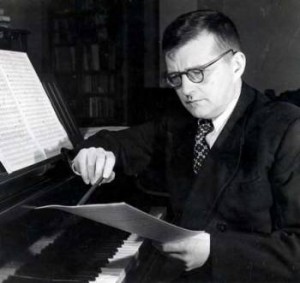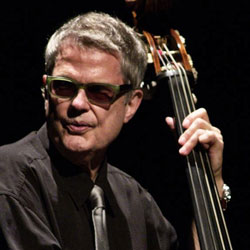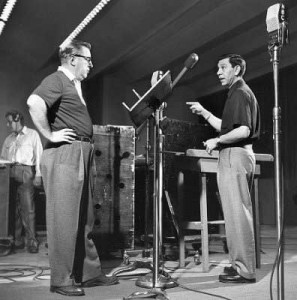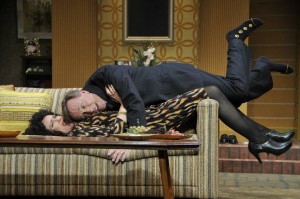Yesterday I wrote about the limits of nostalgia, which put me in mind of the fact that I graduated from high school in 1974, the year that Richard Nixon resigned the presidency and Gerald Ford succeeded (and pardoned) him. To put these latter events in historical perspective, I’m as far away from them now as I was in 1974 from the killing of Bonnie and Clyde.
Here are some other things that happened in 1974:
• One hundred seventy-eight American soldiers were killed in action in Vietnam.
• Alexander Solzhenitsyn was expelled from the Soviet Union and Mikhail Baryshnikov defected from there to Canada.
• The Episcopal Church ordained its first women priests.
• Chicago’s Sears Tower was opened, becoming the world’s tallest building.
 • Ernő Rubik invented Rubik’s Cube.
• Ernő Rubik invented Rubik’s Cube.
• Arpad and Giorgio Fischer invented liposuction.
• Art Fry of 3M invented the Post-It Note. (The company’s records, strangely enough, make no mention of Romy White or Michele Weinberger.)
• Henry Heimlich published an article describing what came to be known as the “Heimlich maneuver.”
• Barcodes were first used to sell products in stores.
• People magazine was launched.
• The number-one hit single was Carl Douglas’ “Kung Fu Fighting.” The year’s top-selling album was Band on the Run, by Paul McCartney and Wings. The record-of-the-year Grammy went to Roberta Flack for “Killing Me Softly With His Song.”
 • The top-rated American TV series was All in the Family.
• The top-rated American TV series was All in the Family.
• The top-grossing (!) American film was Blazing Saddles.
• The best-picture Oscar went to The Sting.
• Monty Python’s Flying Circus went off the air in England and was shown for the first time in this country by KERA-TV, Dallas’ PBS affiliate.
• W.H. Auden’s Forewords and Afterwords, Peter Benchley’s Jaws, E.L. Doctorow’s Ragtime, Lillian Hellman’s Pentimento, Erica Jong’s Fear of Flying, Pauline Kael’s Deeper into Movies, Stephen King’s Carrie, Philip Larkin’s High Windows, Thomas Pynchon’s Gravity’s Rainbow, and P.G. Wodehouse’s Aunts Aren’t Gentlemen (the last Jeeves novel) were published.
• Harold Pinter’s No Man’s Land and Tom Stoppard’s Travesties were written. The best-play Tony went to Joseph A. Walker’s The River Niger.
• No Pulitzer Prizes were awarded in fiction or drama.
 • Dmitri Shostakovich composed his fifteenth and last string quartet.
• Dmitri Shostakovich composed his fifteenth and last string quartet.
• Hank Aaron broke Babe Ruth’s lifetime home-run record. (He held the record until Barry Bonds passed him in 2007.)
• Amy Adams, Leonardo DiCaprio, Jimmy Fallon, and Miranda July were born.
• Jack Benny, Duke Ellington, Charles Lindbergh, Sam Goldwyn, Darius Milhaud, and Ed Sullivan died.
• The U.S. unemployment rate was 5.3%.
• A McDonald’s Big Mac cost sixty-five cents, $3.14 in today’s dollars. (The same sandwich now costs, on average, $4.62 in the U.S.)
• A movie ticket cost, on average, $1.87.
• A gallon of regular gas cost, on average, fifty-three cents.
• A first-class postage stamp cost ten cents.
* * *
Science-fiction writer Arthur C. Clarke speaks in 1974 about what the world will be like in 2001:




 Mrs. T thinks that I might possibly have been happier had I been born forty years earlier. Every once in a while I think she’s right.
Mrs. T thinks that I might possibly have been happier had I been born forty years earlier. Every once in a while I think she’s right.  I wrote those words in 2003, very early in the life of this long-lived blog, and I stand by them eleven years later. It would be an understatement to say that I don’t like everything about the present, but I accept it. What’s more, I don’t idealize the past: I also like Twitter and texting and Pomplamoose and Justified and
I wrote those words in 2003, very early in the life of this long-lived blog, and I stand by them eleven years later. It would be an understatement to say that I don’t like everything about the present, but I accept it. What’s more, I don’t idealize the past: I also like Twitter and texting and Pomplamoose and Justified and 
 Neil Simon’s “Last of the Red Hot Lovers” opened on Broadway in 1969, ran for 706 performances and continues to be performed to this day in regional theaters all over America. It’s never been revived on or off Broadway, though, no doubt because Mr. Simon is now thought to be a joke-spewing theatrical lightweight whose time has come and gone. Yet his best comedies, “Lost in Yonkers” foremost among them, are full of telling touches of pathos that make them more than mere applause machines. That’s what lured me up to New Hampshire to see what Gus Kaikkonen’s ever-excellent Peterborough Players would make of “Last of the Red Hot Lovers,” a three-act farce about a nebbishy 47-year-old restaurateur (“The sum total of my existence is nice”) who seeks to assuage his midlife crisis by joining the sexual revolution and committing serial adultery with a jaded cynic, a ditsy nightclub singer and the sad-sack wife of one of his best friends.
Neil Simon’s “Last of the Red Hot Lovers” opened on Broadway in 1969, ran for 706 performances and continues to be performed to this day in regional theaters all over America. It’s never been revived on or off Broadway, though, no doubt because Mr. Simon is now thought to be a joke-spewing theatrical lightweight whose time has come and gone. Yet his best comedies, “Lost in Yonkers” foremost among them, are full of telling touches of pathos that make them more than mere applause machines. That’s what lured me up to New Hampshire to see what Gus Kaikkonen’s ever-excellent Peterborough Players would make of “Last of the Red Hot Lovers,” a three-act farce about a nebbishy 47-year-old restaurateur (“The sum total of my existence is nice”) who seeks to assuage his midlife crisis by joining the sexual revolution and committing serial adultery with a jaded cynic, a ditsy nightclub singer and the sad-sack wife of one of his best friends.